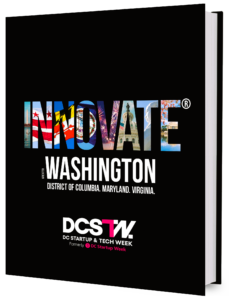A new era is unfolding in the vast expanse of space. “Space is becoming an incredibly crowded place,” says Eric Ingram, Chairman and Chief Strategy Officer of Scout Space, a pioneering company based in Washington, D.C. With this opening, we step into the world of Scout Space, a company committed to enhancing the safety and sustainability of space through innovative technology.

The Vision of Scout Space
From his early fascination with space to realizing the dire need for improved space infrastructure, Eric’s journey from research in an atomic physics lab doing LiDAR development, to antenna design for spacecraft, to working as an engineer in an asteroid mining company, to being on the regulatory side at the FAA Office of Commercial Space Transportation, is a testament to his vision. “We want to contribute to the space ecosystem so that all the cool stuff we read and watch in sci-fi can actually happen,” he shares, reflecting on his path to founding Scout Space. His ambition is clear: to minimize the risks in space. This vision is at the heart of Scout’s mission.
Scout Space develops advanced vision capabilities for spacecraft, enabling them to detect other objects in space. This technology plays a crucial role in safeguarding assets worth billions of dollars, ensuring the sustainability of space as an ecosystem. Such innovations are essential for maintaining space as a viable environment for future operations, supporting humanity’s ongoing journey toward becoming a space-faring civilization.
The way that came about was as the means to develop capabilities centered on enhancing data awareness and understanding of space activities. By equipping customer spacecraft with payloads that offer visual capabilities, Scout Space adds transparency and insight into the orbital ecosystem. Eric articulates: “The less risky it is, the more things you can do safely, the more people will do it, the more financers will put money into it, and the more it can evolve and grow. If my role is only in lowering these risks that enable others to innovate and expand space endeavors, then I’d be ecstatic.”
Just a Quick Note:
InnovationsOfTheWorld.com has partnered with Trade License Zone (TLZ) to support global innovators looking to expand internationally. Take advantage of the UAE’s Free Zones—enjoy streamlined setup, low corporate taxes, and a strategic gateway to the Middle East and beyond.
Get Your UAE Free Zone License Fast & Easy!Eyes and Brain in Space
Scout stands out with its cutting-edge technologies. “We’ve developed proprietary computer vision systems, machine learning, guidance, navigation, and control software that is installed onboard our customer spacecraft via payloads,” Eric explains, “acting as the eyes and brain for spacecraft to navigate autonomously, or serve space traffic monitoring and observation roles.”
These innovations enable unparalleled monitoring and data analysis, revolutionizing how we interact with and understand space. This technology enhances customer spacecraft performance, enabling more efficient mission execution with additional capabilities to provide
them with another source of income. Eric and his team’s enthusiasm is palpable in their role in solving complex space-related challenges.

“We want to contribute to the space ecosystem so that all the cool stuff we read and watch in sci-fi can actually happen.”
Navigating New Frontiers
Eric delves into the company’s unique business model, focusing on integrating their technology into clients’ missions. He elucidates: “Our business model involves retaining ownership of the data collected by these payloads. We then process and leverage this data to create and sell information products and solutions to other clients. This unique and somewhat complex approach is proving to be highly effective, gaining significant traction in the industry.”This model is not just about business; it’s about creating a symbiotic relationship between technology and exploration.
Impact on the Space Industry
The impact of Scout on the space industry is significant. Eric speaks passionately about the future of space exploration. “It’s not just about launching more; it’s about being responsible and regulated,” he asserts. Scout is at the vanguard of promoting safer and more sustainable practices in space, setting new standards for the industry.
However, the journey is not without its challenges. Eric discusses the complexities of regulations and the need for industry-wide cooperation. “Space traffic management is a political and practical challenge,” he admits. Yet, these challenges are coupled with immense opportunities. Ingram is optimistic about the potential developments in space technology and exploration, painting a picture of a future rich with possibilities.

A Visionary Leader and a Pioneering Company
“Five to ten years ago, what we’re doing today would not have been technologically or financially feasible. Can you imagine how that will be a decade from now? We’re just at the beginning,” he declares, his words resonating with the spirit of a true pioneer. Under Eric’s visionary leadership, Scout stands as a beacon of innovation and exploration in space technology. Scout is not just a company; it’s a harbinger of a new age in space, an era where dreams and reality converge in the boundless skies above.
SCOUT Space was founded in 2019 with the mission to enable a new era of space safety and transparency. SCOUT’s in-space products and services, first launched in June 2021, allow spacecraft to see and understand things around them. The orbital distributed sensor network developed by SCOUT will significantly improve Space Domain Awareness (SDA) and ensure responsible use of the space environment. The company is a Techstars, MassChallenge, and venture-backed startup with ongoing government and commercial contracts. SCOUT holds the Established® 2021 Startup of the Year® title.
















